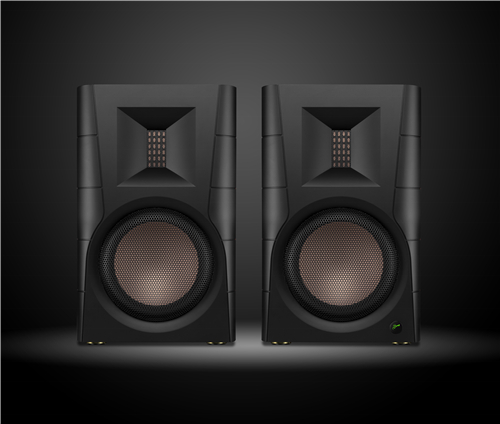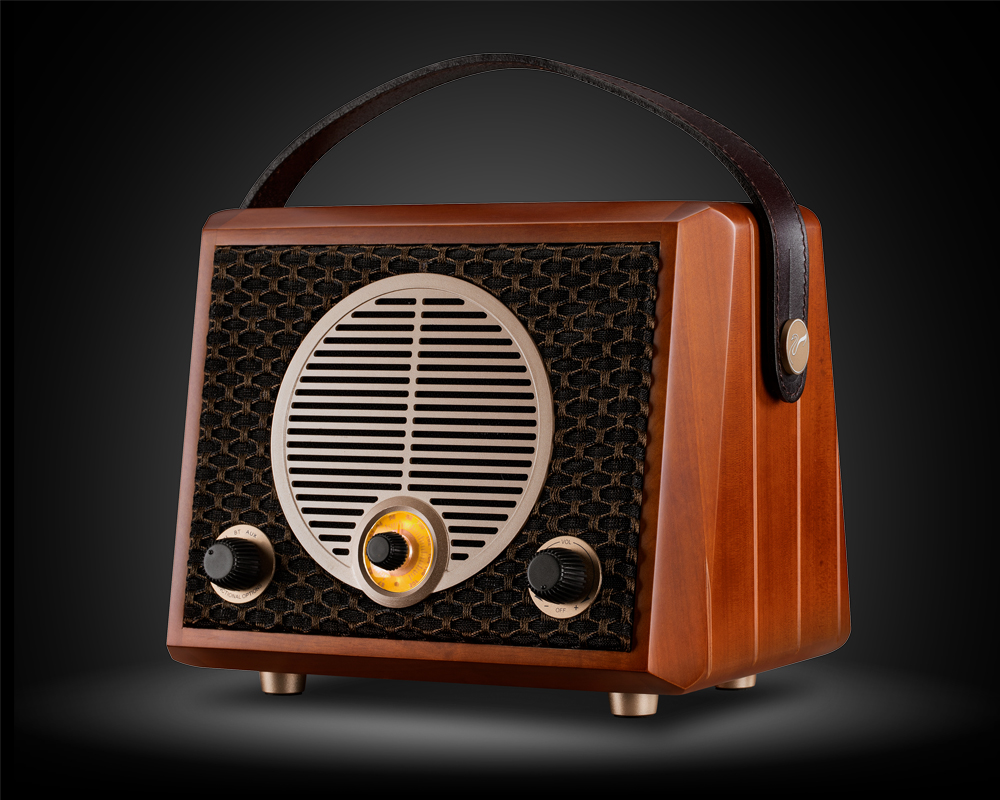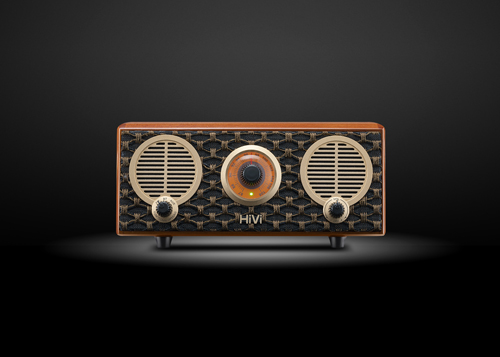Give you the most real voice
"Do you like music?" In the movie "Love Mala Tang", a silly young boy carefully recorded a tape with various voices and gave it to the girl who made him want to move. In that cassette was the natural sound of wind, birds, railroad tracks, and of course the girl's silver bell-like laughter—that was the most beautiful voice in the hearts of Boys Over Flowers.
It is a high thing to be able to truly restore and reproduce the beautiful and unforgettable sounds in the world. Yao Hongbo, a 38-year-old Canadian-Chinese businessman, started his business in 1991 with a few thousand yuan from relatives and friends, and has been in the Hi-Fi (high-fidelity) speaker and sound design industry for more than 10 years without realizing it. Talk to him about how to play the sound and how to listen to the performance of the voice. He will use the typical "Turtle" to send a little exaggerated Mandarin to you, mixed with Western gestures, and his expression is obsessed and intoxicated. .
When a reporter asked him how he felt when he was sitting alone in the listening room, drinking coffee and listening to music, and sitting in the middle of the night, he blurted out an English sentence "This is the life (this is life)" . The function is close to the sentence of the teenager in the movie: "Do you like music?" - I like it, I have liked it since I was very young.
Twenty-two years ago, a 16-year-old boy came to Shenzhen after graduating from technical secondary school. He heard the sound of a sound system for the first time, and he was shocked at that moment. At that time, his salary was 70 yuan a month, but he used all his savings of 430 yuan to buy the set of stereo. Although now it seems that it is just a TEAC deck, a brand-name power amplifier with a pair of ten-inch subwoofer speakers, but it opened a door to him. As the old adage goes, "It's a new beautiful world".
In 1986, the young boy had grown into a guy in his early 20s. This year, he assembled a set of sound system by himself.
The story after that is known to everyone.
In 1991, in the Tongjian Building on Shennan Middle Road, Shenzhen almost invariably walked out of two young people who were "going to Zhuhai to start high-tech enterprises", one was Shi Yuzhu and the other was Yao Hongbo.
In the early 1990s, there was an S8 speaker called "HiVi", which was very popular in the circle of audiophiles in mainland China. It is said that it is the best speaker in China. With this self-created product, Yao Hongbo and his entrepreneurial partners dug the first pot of gold.
Travel to North America
From 1992 to 1993, Hivi's products were "burned" in the domestic audiophile industry. In China, "the return of the east wind is full of spring", the manufacturing industry is booming, and many production-oriented enterprises are popular to "make quick money". Products follow suit. And Yao Hongbo, who "has no competitors and is very profitable", has already decided to "go out".
"After a period of development, Swans gradually felt that it was limited by the domestic environment and its own design concepts, and reached a bottleneck. At that time, we believed that the United States was the center of the world's electro-acoustics, and the world's most famous electro-acoustic companies gathered in North America. Breakthroughs can only be made in regions with the most developed audio technology. Later, we went to Canada.
"When I came to North America alone in 1993, I found that China's loudspeaker production accounts for 80% of the world's, but its output value is less than 20%. Especially in the United States, Chinese products can only be found in stalls sometimes."
In Yao Hongbo's words, "Swan should think carefully about how to gain a decent foothold in the world's largest audio market."
When visiting the market in the United States, Yao Hongbo took many traditional products of design. "The Americans said after reading it, your stuff may be good, but it's similar to what we have here, and it's nothing special. Even if it sounds better, it doesn't make much sense. The market here is like a house. It is basically full of people, and the remaining space is reserved for those who have special features and specialties."
Yao Hongbo was a little ashamed. There is no way, and you can't imitate it yet. Americans despise imitators the most. "If HiVi wants to enter the market with dignity and dignity, it can't rely on cheap goods. At that time, I decided to develop something that was different in principle, so that it would be easily accepted by Americans who like to invent." Yao Hongbo said, " After studying abroad for 5 years, I have tasted the ups and downs."
In 2000, Swan won two gold awards, "Award of Excellence" and "Best Value Award" in the Las Vegas International Electro-Acoustic Equipment Exhibition.
Now Swan has developed into a real international company: speaker parts (mainly ribbon tweeters, the most critical vibration components) are in Toronto, speakers are in the United States, China is doing final assembly, post-production work, and speakers in the Chinese market. Work.
HiVi currently has three brands: HiVi, Hi-Vi Research, which is a loudspeaker unit; Duxi, a high-end speaker brand close to the professional "Hi-end"; "Swan", which has a history of nearly 20 years American brand.
Wisdom, sweat and borrowing
It is worth noting that recently, many Chinese audio companies have reinvented the market rather than products. There are many people who do well in the market, but the products are basically the same. In the end, a price war is fought, and a large number of cheap and weak products flood the market. However, multinational companies like Yao Hongbo, whose headquarters are located in Toronto, Canada, and whose development department is located in the United States, do not have an advantage in price competition with some mainland companies.
Yao Hongbo's survival philosophy is: "sell wisdom, not sweat" and "bring wisdom".
"China's future development does not depend on people transferring those polluting enterprises to China, nor does it depend on prolonging the working hours of workers and accumulating sweat. China's miracle should depend on brains and technology. It should be improved through high technology. The competitiveness of the nation in all aspects. Swans sells a ribbon tweeter for $168 in North America, isn't it just selling technology?
Different from the expensive technical equipment used by some enterprises, Hivi sets its sights on those who possess the power of technological innovation. Yao Hongbo's concept of "operating cost accounting" is: "We paid an annual salary of 100,000 US dollars to directly hire a senior engineer in the United States. At the time, some people thought it was a bit unreasonable, but if this person can create millions of dollars for the enterprise. The US dollar profit, which is more cost-effective than using millions of capital to invoke the so-called technical equipment, and then spend time digesting it and can only follow others. Which way do you think is more cost-effective?"
At the beginning of 1997, Swans acquired American "Swan" and manpower. The owner of "Swan" is now a senior designer of Swans. Swan' 5.1A series and 2.1C are all his handwriting, retaining the style and cultural connotation of Swans.
You never know the end of his thirst for a beautiful voice
Yao Hongbo, who has been painting since elementary school, considers himself a pursuer of life aesthetics. If you are fortunate enough to have been to his warm home in a small western-style building in the garden, to have seen his elegant and extraordinary audio-visual living room, and even more fortunate that you have also met his beautiful wife, you will surely understand the aesthetics of life. Also blurt out "This is the life", or "It's a new beautiful world."
Modern electro-acoustic design is a science. Yao Hongbo said that he is more willing to understand it as an art, and it takes a lifetime of energy to constantly create perfection.
Yao Hongbo has been pursuing the HI-End feeling in development. What does this feel like? A combination of high-fidelity playback, artistic appreciation, high-tech content, and more. "Listening and tuning are not completely clear through physical methods. It requires the accumulation of art, culture, and life experience, etc., and also requires a lot of listening to various sounds to grasp the feeling."
"As someone said to measure the quality of sound, Europeans use their ears to listen, while Japanese use instruments to measure, which reflects nationality; to listen to classical music, it is best to use German speakers, and to listen to modern music, American speakers are used. It's about tradition here."
At the invitation of Mr. Yao, When I heard Tsai Qin's pure voice like a blue sky and a clear spring spreading slowly and endlessly in the room, I remembered what the ancients said, "The spring breeze is visible in the flowing water, and the gentleman is sent to the gentleman." The transparent elegance and noble sadness are as silky as bamboo.
Excerpted from "Practical Audio-Visual Technology", No. 5, 2002, page 7




